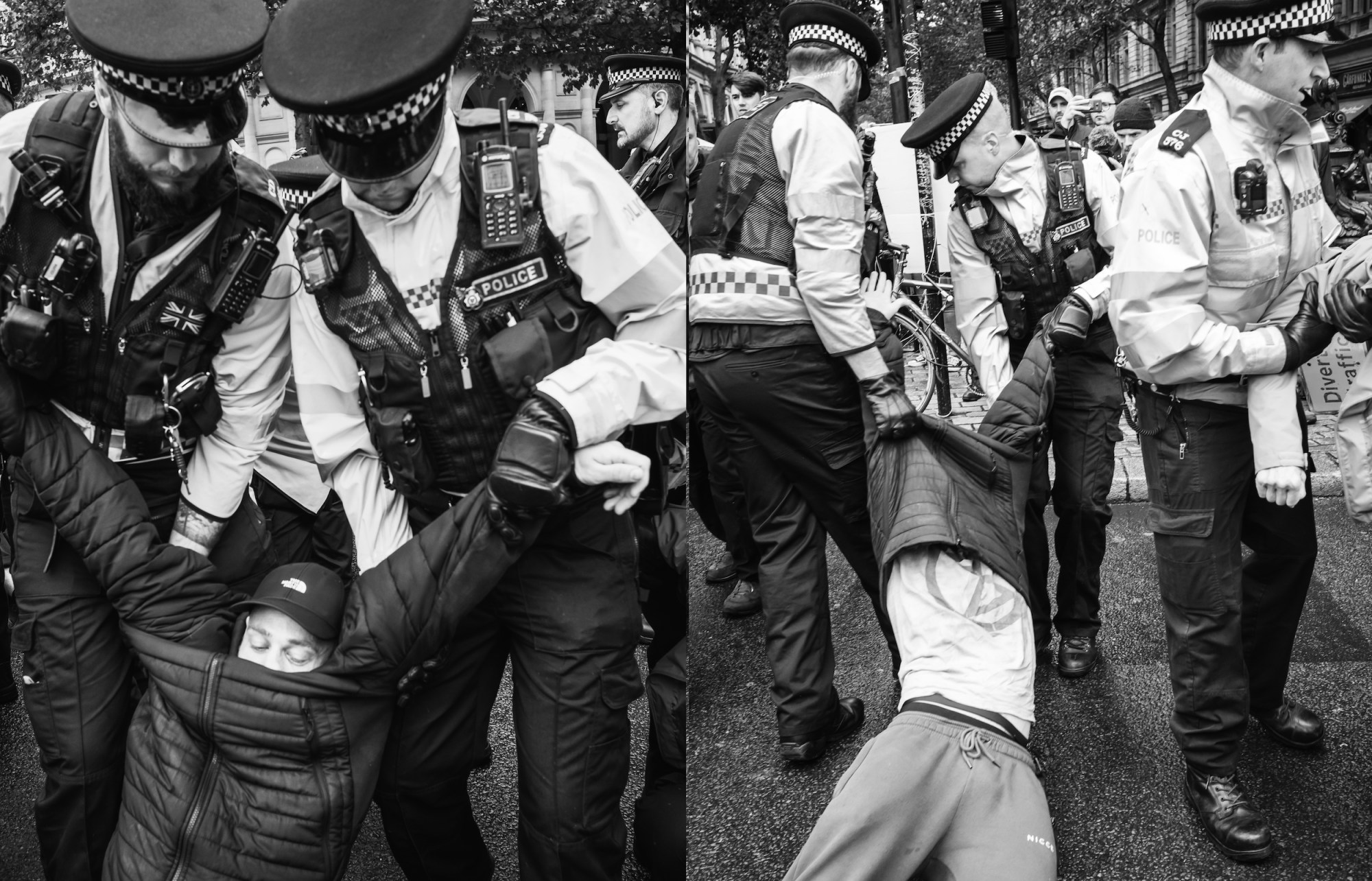This story originally appeared in i-D’s The Get Up Stand Up Issue, no. 358, Winter 2019. Order your copy here.
Two weeks before writing this and at the peak of the Extinction Rebellion protests in London, I got off the bus to see two people standing around a poster. The wall behind them was pasted with flyers for new club nights, but in the middle stood a manifesto with opening lines that read: “We are facing an unprecedented global climate emergency. The government has failed to protect us. To survive, it’s going to take everything we’ve got.” A few days later, when accusations of chaos and strategic oversight were justifiably waged against a small cohort of protestors who seized control of a train at Canning Town, it was an image that stuck in my mind. Extinction Rebellion had the power to convert people to its cause, provided it played to its strengths, and avoided needless mistakes. The people stood around the poster looked nothing like your traditional environmentalists: an old man and his shopping trolley, a mum and her child. In a decentralised resistant movement, strong, easily reproducible assets like these are invaluable and XR has done well to create recognisable symbols, as well as a recognisable visual style and tone of voice.
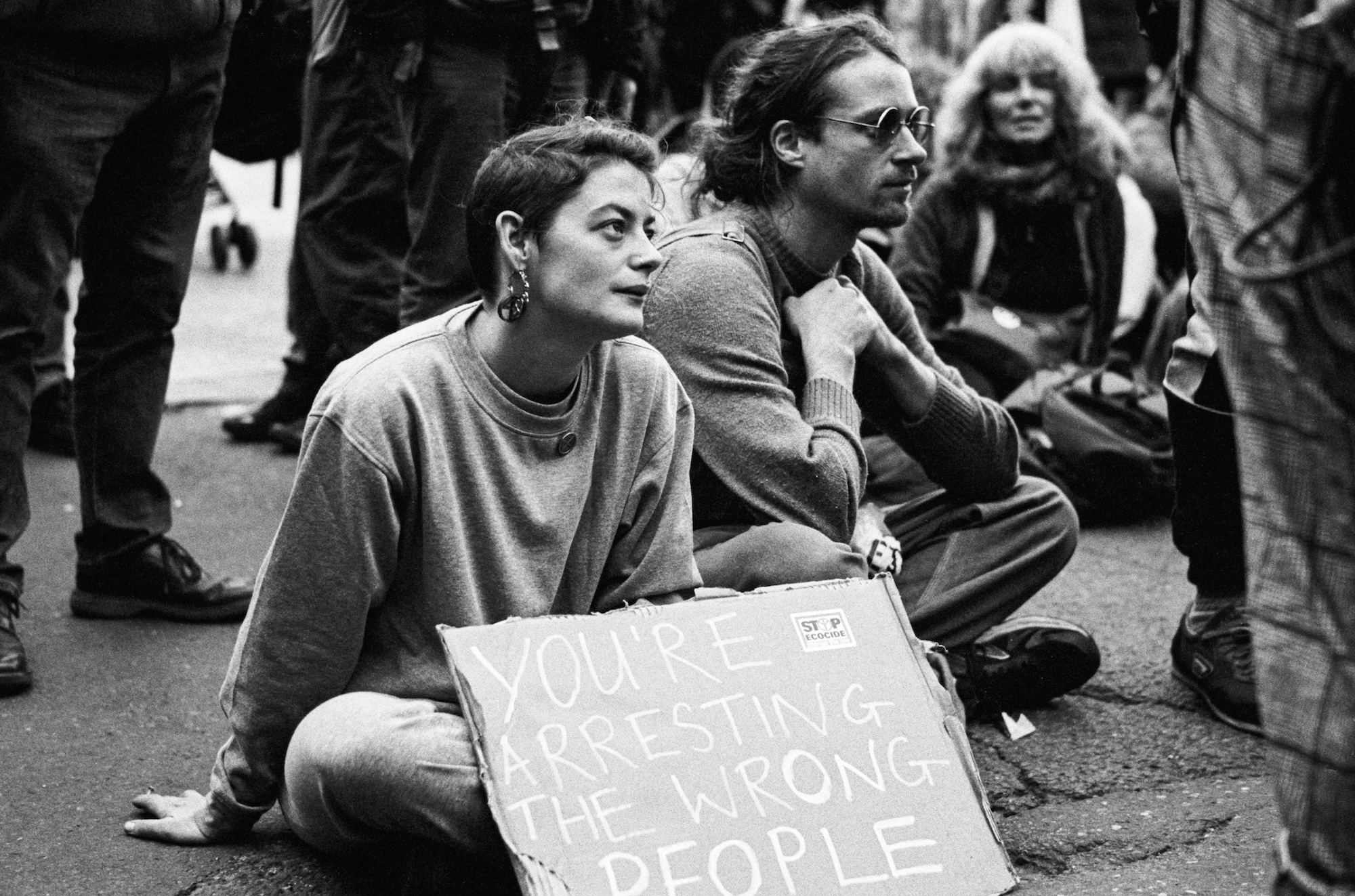
Galling as it might be for many of us to hear, the techniques of modern advertising can be extremely useful in protest — to supplant the present system, lampooning its style of delivery and the purview of a marketing industry on which consumerism greatly depends, might be one of the quickest ways of exposing its pernicious tendencies. Greta Thunberg’s deadpan delivery, possibly a symptom of her Asperger syndrome, continually serves as a quiet reminder of the gross, insincere dimensions of a PR and marketing industry in overdrive.
In considering the XR protest through the lens of its propaganda, it also reminded me of the Situationist work that inspired, and was inspired by, the May ‘68 protests in France. The Situationists were concerned with the alienation of people under late Capitalism and a climate that promoted the idea of culture as something that we passively consume. Instead, the Situationists wanted to reawaken our sense of place and purpose, creating a new kind of culture predicated on action and more importantly, interaction. The May ‘68 protests, which started as a slew of university occupation protests against consumerism and late capitalism, naturally attracted their attention, and vice versa.
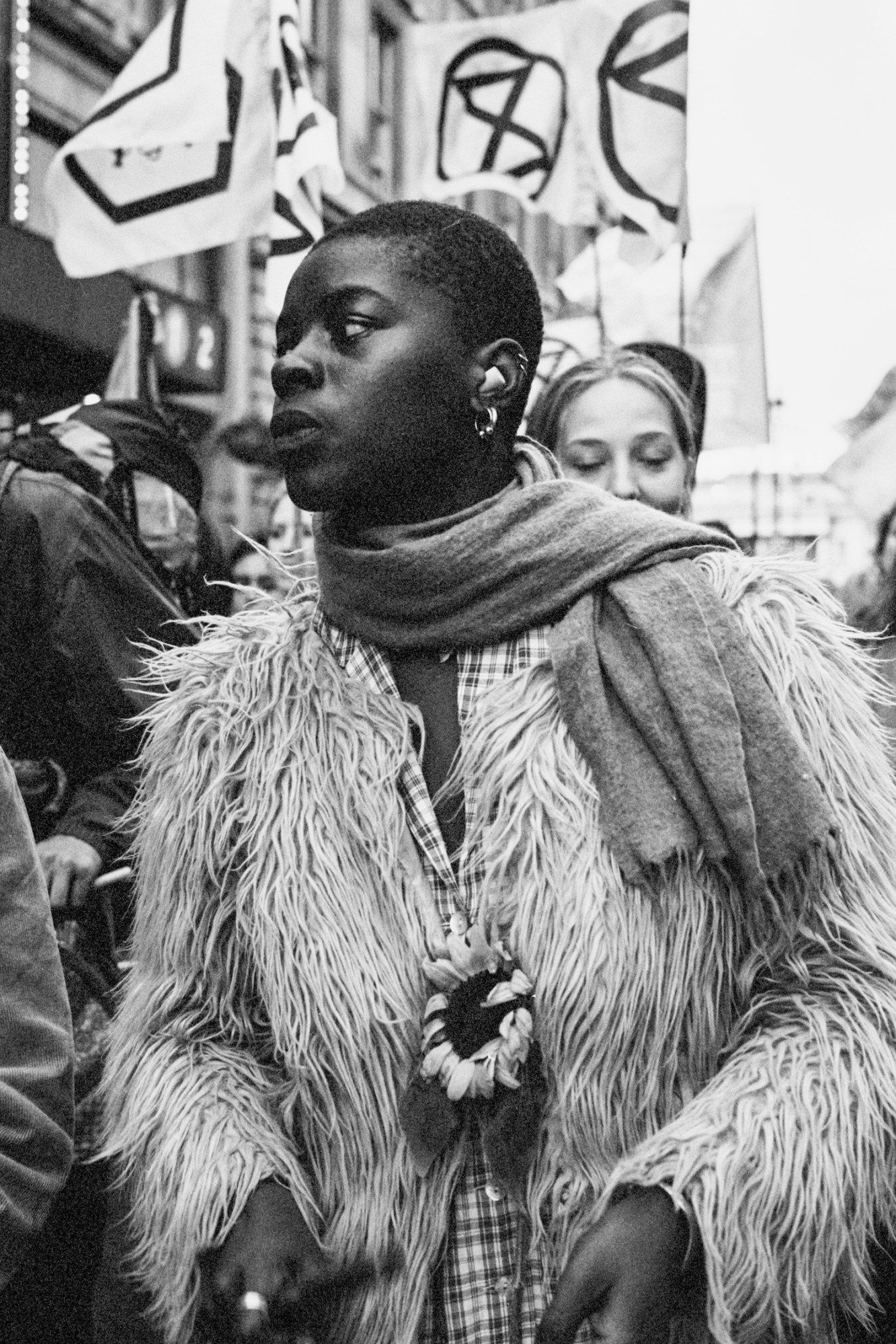
The comparison with XR led me to think about what could be learned from those earlier events, as well as later protest movements such as Occupy, and their limited results. Though May ‘68 had an enormous impact on western culture, its political project failed. In the end, and similar to Occupy, its demands had become unclear and in some cases, contradictory. I sometimes worry about the haziness of XR’s demands: 1) Tell the truth. 2) Act now. 3) Beyond politics. Truth-telling in the face of impending disaster seems insufficient; and when we have the fantastic reporting of journalists like George Monbiot and Naomi Klein, the protest movement can afford to focus more squarely on action and reform.

But it’s the third demand that troubles me most, and the inference that climate change can ever be disentangled from the formal systems of politics. While I resist the reading that capitalism alone is to blame for climate change, it is nevertheless inextricable from class because a small minority are responsible for a high proportion of emissions, and because the poorest stand to face the worst repercussions.
So the demands of the climate cause go hand-in-hand with the aims of socialism. There’s no green movement that doesn’t also necessarily dictate redistributed wealth and limitations on excessive consumption, including gas-guzzling SUVs, private jets and the number of commercial flights taken each year. The Green New Deal proposed by Alexandria Ocasio- Cortez in the US and latterly adopted by the Labour Party in Britain, sets out a clear agenda and roadmap towards creating a green economy, including a new industrial strategy, free access to public transit and a large-scale low-carbon housing project. These are tangible policies to radically transform the energy infrastructure to reduce emissions, and create many more jobs in the process.

More explicit recognition of the class dimension to the climate crisis will also help XR avoid the outcome of May ‘68 and the fate of Occupy, which both in various ways stood accused of becoming hobbies of a bourgeois elite who have the luxury of being able to disengage from wider political discussions on labour and wages. I personally don’t subscribe to the view that XR is limited to white rich people with free time on their hands, but that’s not to say that I can’t see where the complaint comes from, or the harm it poses to the cause.
Firstly, XR should acknowledge that ignorance of state violence is a privilege. Those forced into contact with the authorities on a regular basis will already know what brutality underlies the appearance of apparent civility in our society. This is what drove so much frustration towards XR calling for people to get arrested; and by reverse, befriending the cops.
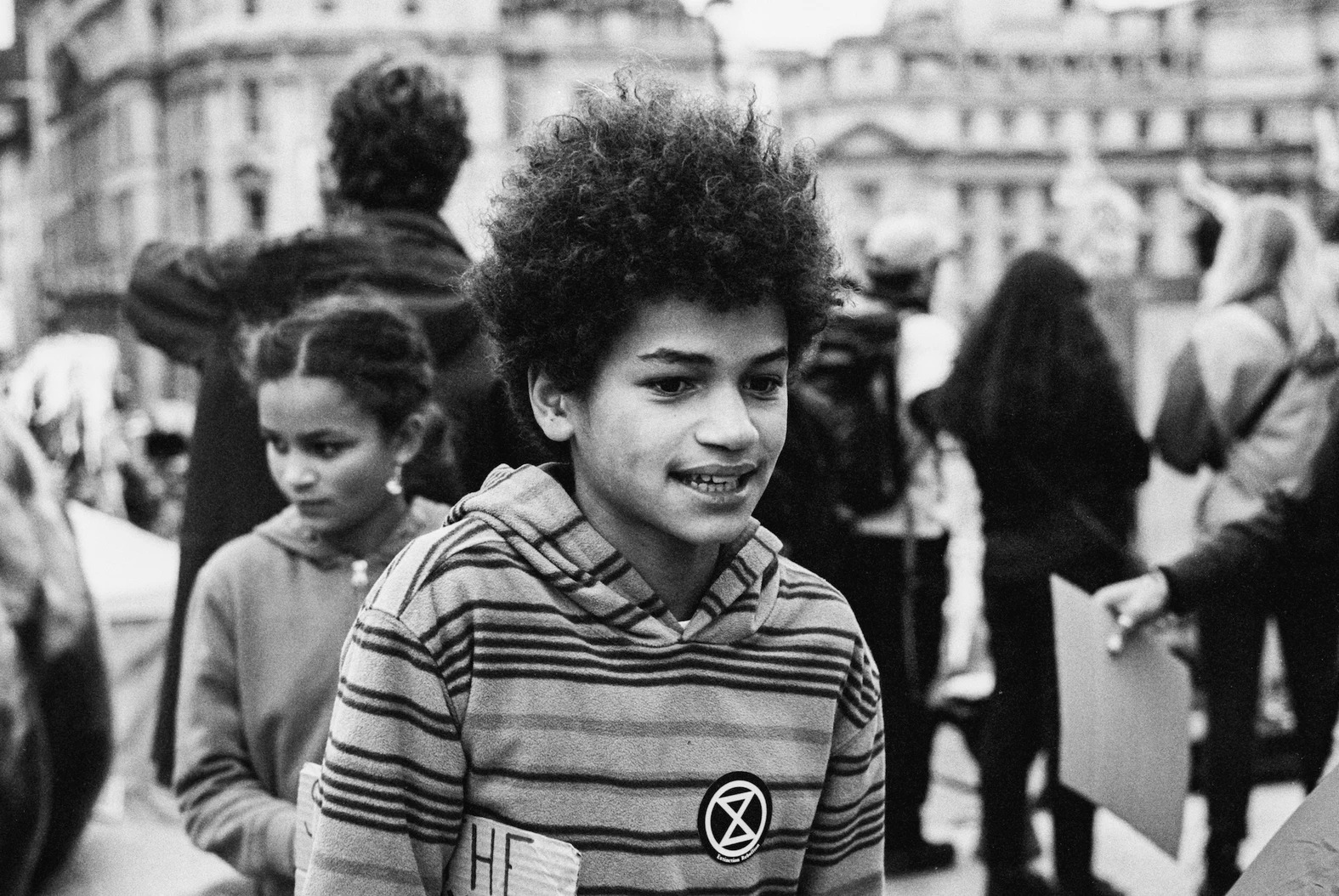
The strategy of arrest isn’t necessarily a bad one, provided it is carried out by people with enough social standing that the imposition of a criminal record won’t lead to them losing their livelihood. Provided it acknowledges the tyranny imposed on a black community continually at risk of arrest. In administering advice to its supporters, XR would do well to acknowledge the disparities in lived experience imposed by class and race, and to nuance its advice accordingly.
What’s more, in the first wave of protests in 1968, great swathes of the French public came round to the protesters’ cause thanks to its ability to expose the sham in that veneer of civility. The protesters themselves didn’t need to do a great deal beyond remaining steadfast and grouping together to defend their rights, to prompt a violent backlash from police and expose the programme of state violence that had hitherto flown under the radar of mainstream public attention.

Sympathy was the most powerful tool at their disposal. But unlike ’68, the problem we face in trying to elicit sympathy in the case of climate protest is that the opposition is in many ways elusive. No single act of wrongdoing has taken place, such as the closing down of a university. Yes, the global oil business and its dependence on crony capitalism might be a bigger crime, but it is a harder one to pinpoint.
To meet a problem that is manifest in innumerable ways, we will need protest on a scale far greater than that of 1968, but in doing this, we must not lose sight of how easy it will be for detractors to paint us as the aggressors. After all, we’re the conspicuous ones, while those we oppose hide behind the corporate machine.
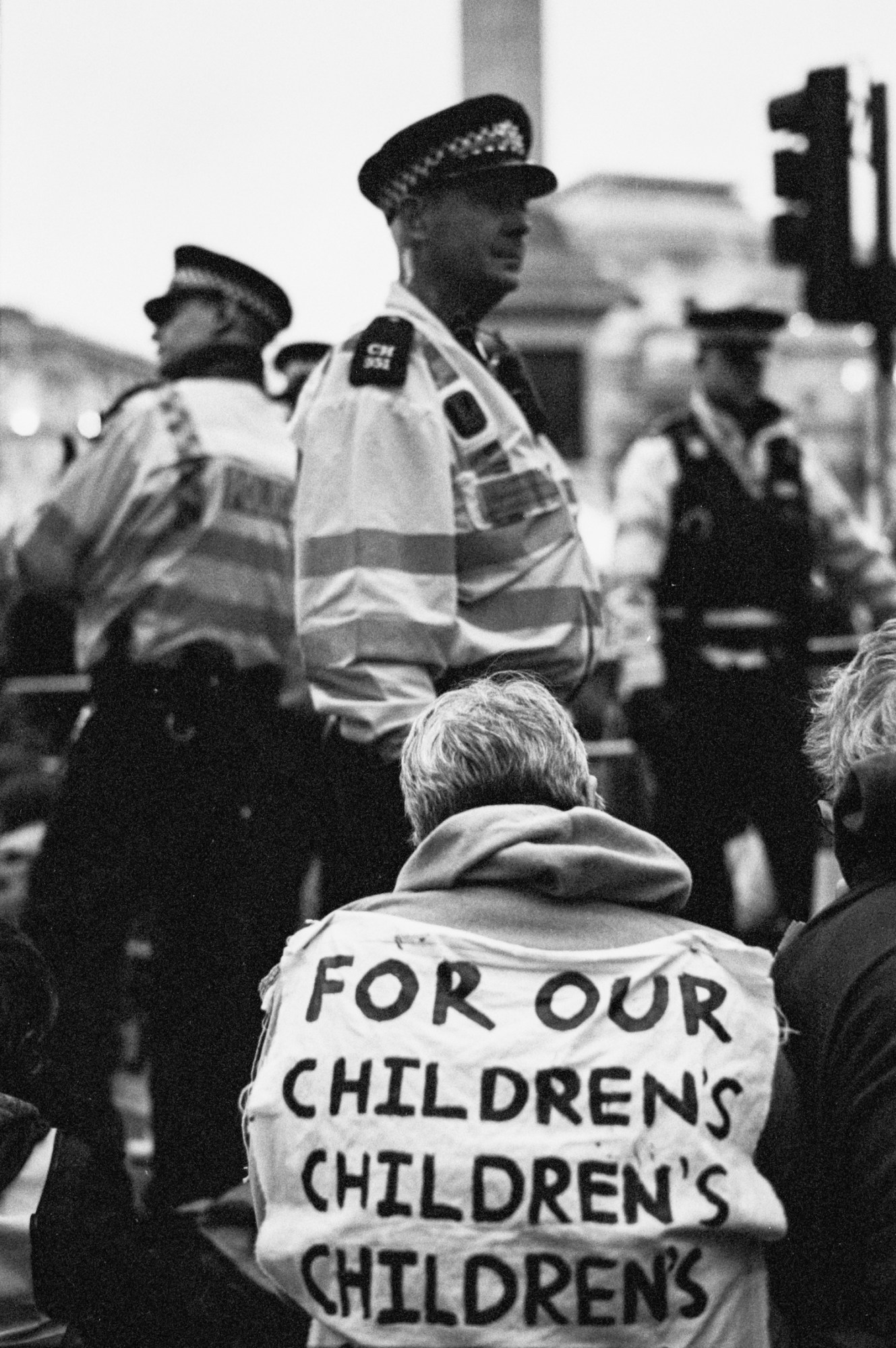
Sympathy is something we can elicit through calm and peaceful resistance, and by ensuring that the moral high ground is never lost. Anger and frustration towards a system that is pushing us closer to the brink of extinction is completely understandable, but we need to breathe and be strategic. This won’t be achieved if we are seen to be deliberately goading the general public, by disrupting daily life for those simply trying to make ends meet.
Through shrewd communication and strategic, peaceful resistance, more and more people are coming round to the idea that the present system is broken, and that an alternative is needed in order for all of us to meet the demands of the future. Reason is on our side, we just need to give it the stage, and gather an audience.
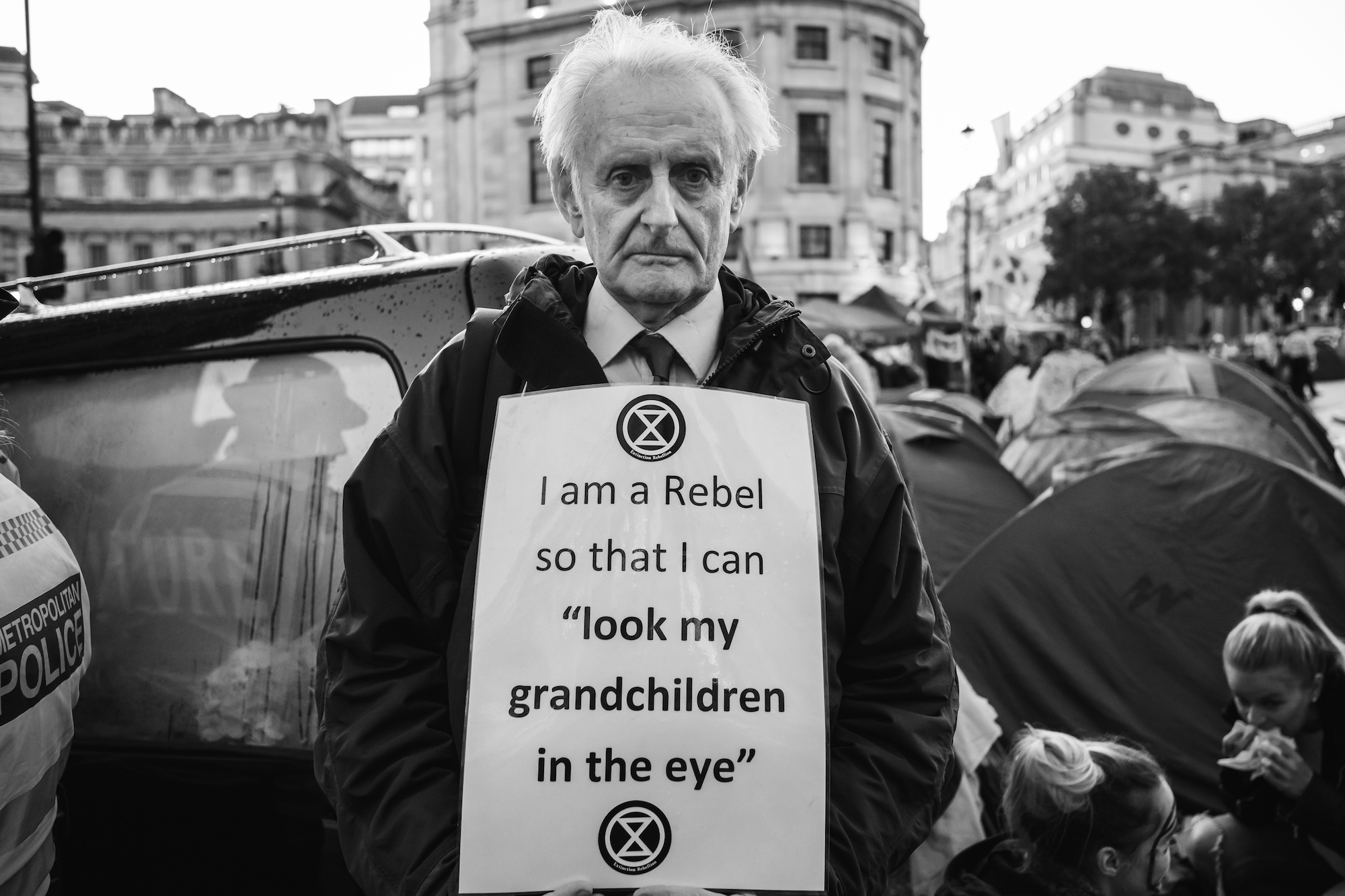
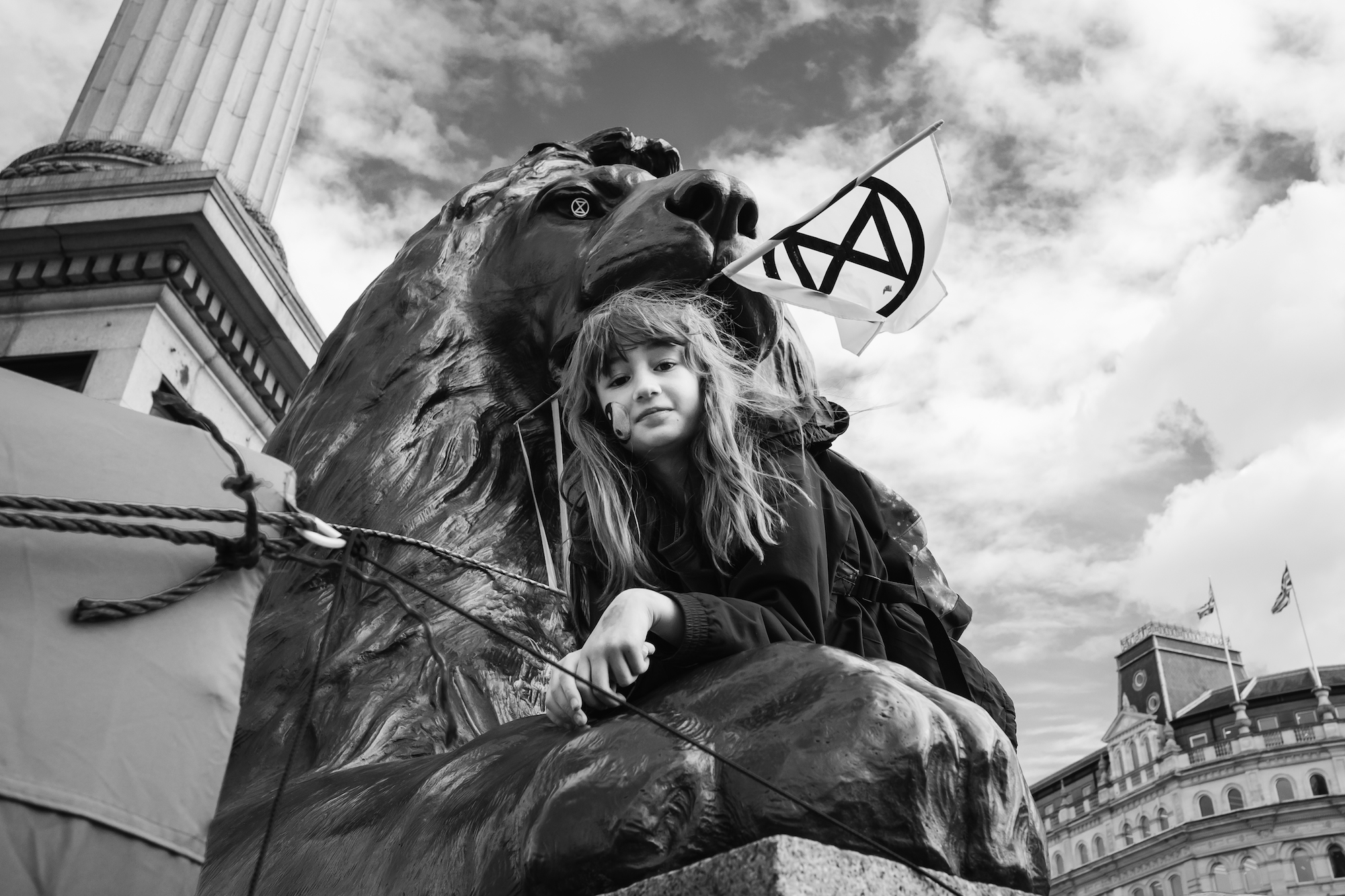
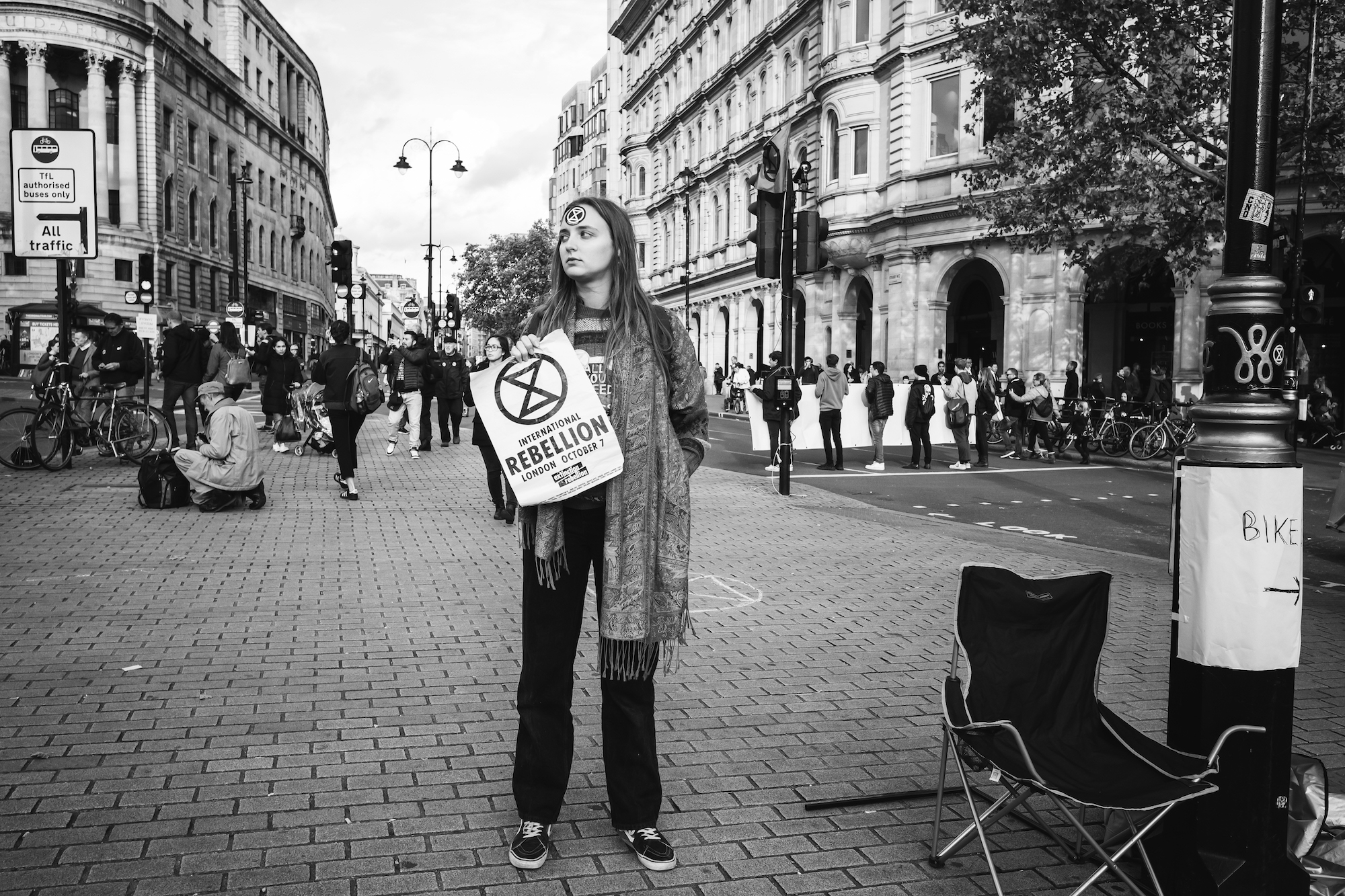

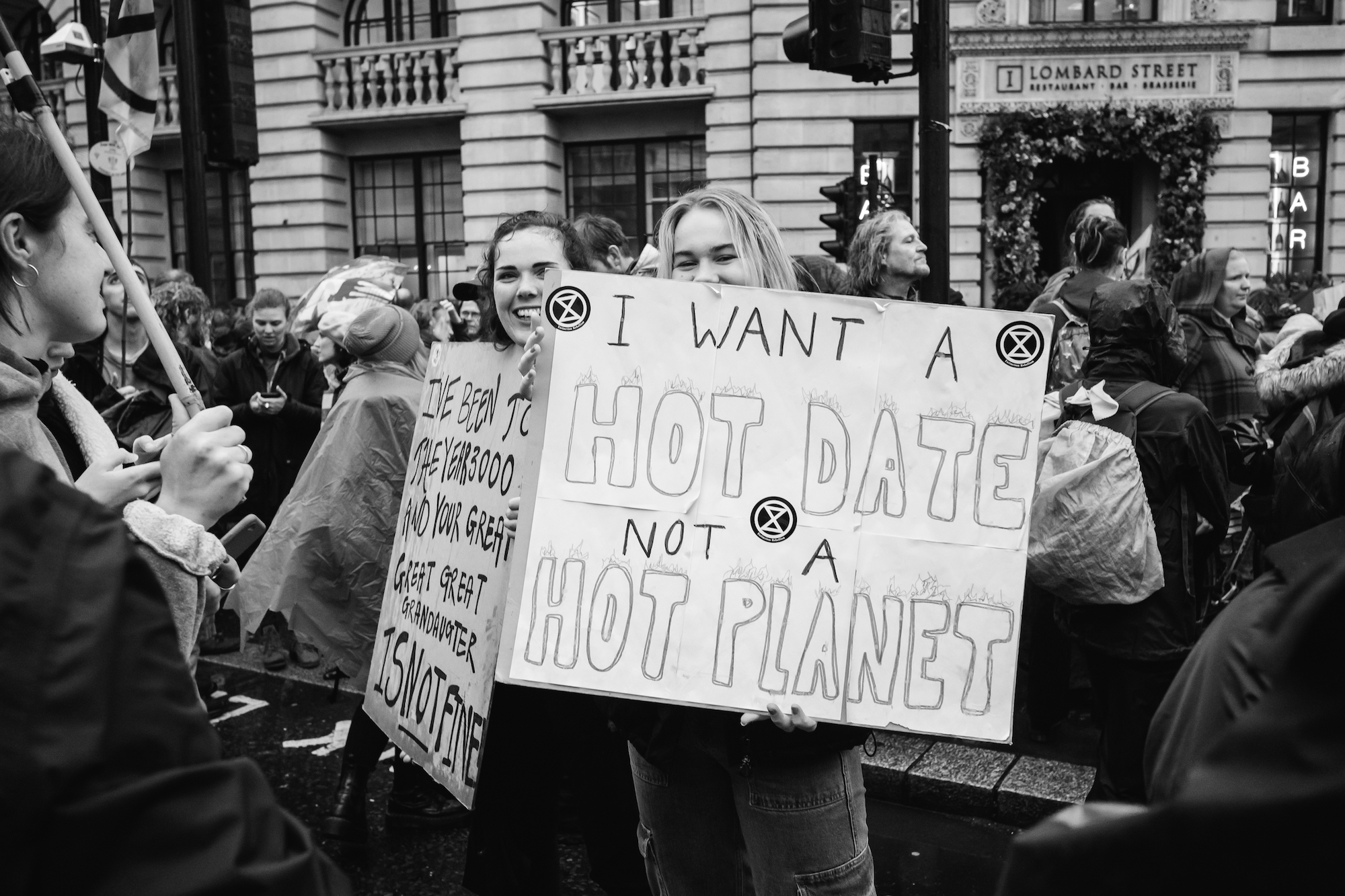
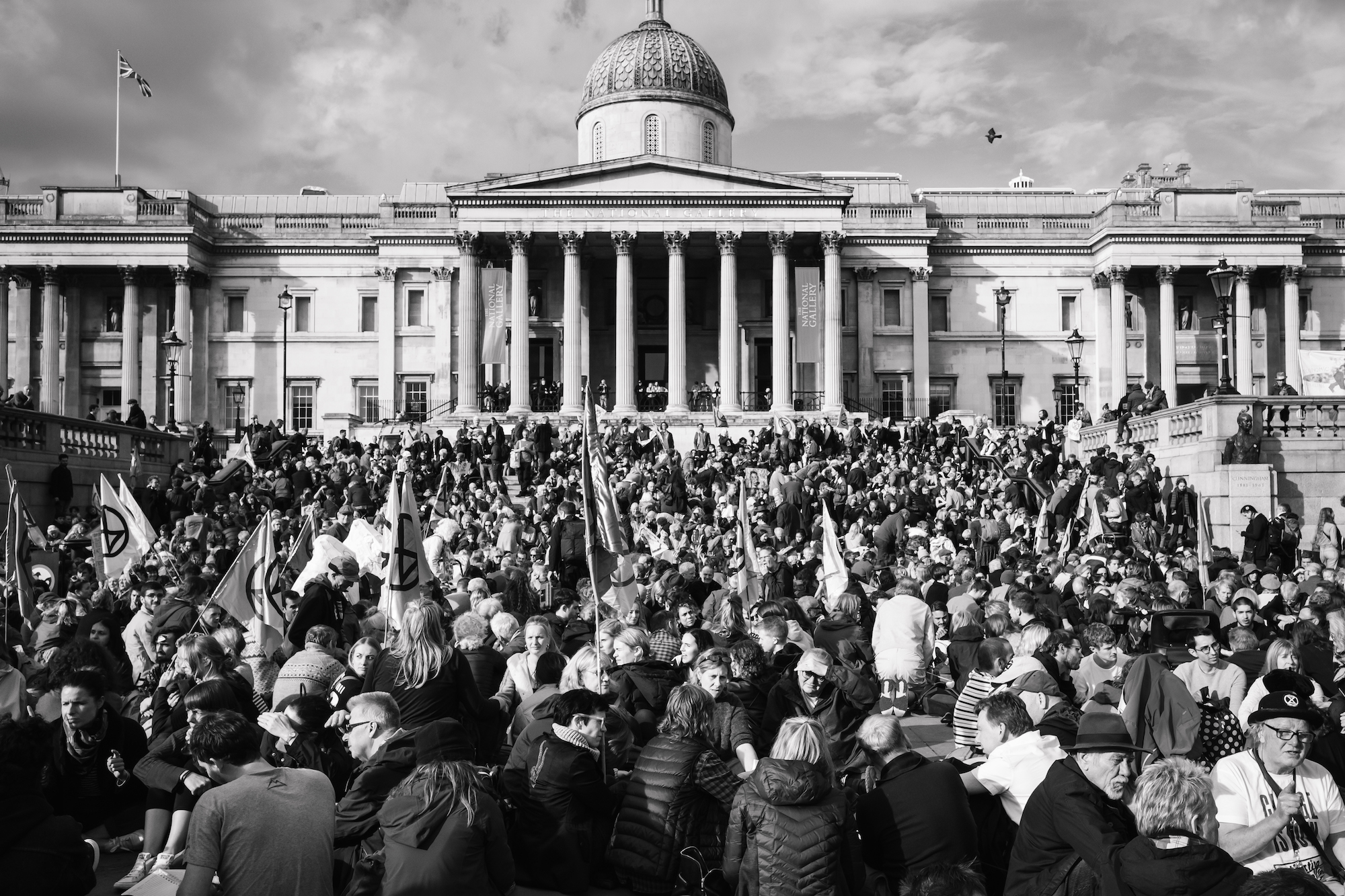
Credits
Photography Hiroshi Tabata
